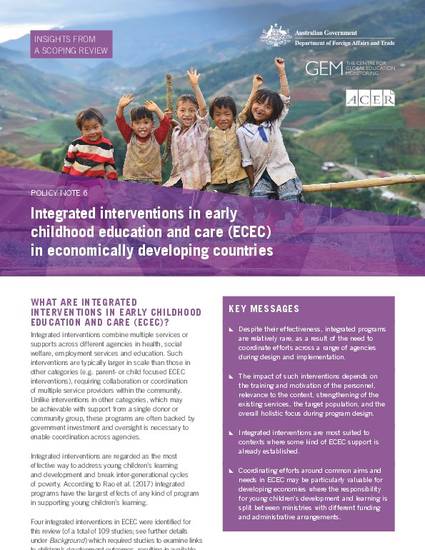
Integrated interventions combine multiple services or supports across different agencies in health, social welfare, employment services and education. Such interventions are typically larger in scale than those in other categories (e.g. parent- or child focused ECEC interventions), requiring collaboration or coordination of multiple service providers within the community. Integrated interventions are regarded as the most effective way to address young children’s learning and development and break inter-generational cycles of poverty. Four integrated interventions in ECEC were identified for this review (of a total of 109 studies) which required studies to examine links to children’s development outcomes, resulting in available evidence for Paraguay and Peru (Latin America region) as well as the Philippines and Vietnam (East Asia region).
Copyright Australian Council for Educational Research 2019

Insights from a scoping review: Policy note 6